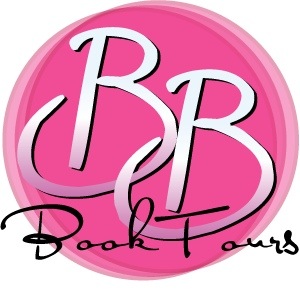Hello Everyone!
A few weeks ago I read Rebecca’s first book, Faery Rebels: Spell Hunter ( you can find my review here) and I really liked the world she created! She is now striking again with the second book in the series, Wayfarer(releasing June 22, 2010). She very nicely accepted to tell us a bit more about the art of worldbuilding!
--------------------
Worldbuilding: It's not just for high fantasy anymore. In fact, it never has been.
What do I mean by that? Well, when most people think about worldbuilding, they imagine the creation of some fantastic imaginary realm, far removed from our own experience. Tolkien was the master worldbuilder in his construction of Middle-Earth, for instance; he even invented whole new languages for his characters to speak. But it's not just epic fantasy authors who need to think about worldbuilding. It's important for urban and contemporary authors, too.
Yes, most urban fantasy takes place in the big cities of North America, and most readers know what that setting is like. There isn't the same need to invent an elaborate background for the story, not when we've all seen New York City a thousand times on TV. But still, the idea of urban fantasy depends on the existence of another world or society running parallel to or just beneath the surface of our own -- and that's where worldbuilding comes in, to develop that idea and make it seem just as plausible to the reader as the ordinary world they see every day.

What I needed to do was to carefully think through the consequences of who the Oakenfolk were, and what I'd done to them by cutting them off from their magic and from the outside world. How would their society have developed over the past two hundred years? How did the faeries interact with each other? What would their customs be? What rules would they live by? What did they eat, how did they get their food, where did their clothes come from and how did they get the materials they needed to survive? How would their rapidly dwindling population -- and the total absence of males from their society -- have affected them?
On the surface those might seem like dull research questions, but thinking about those issues and working the answers into my story gave Spell Hunter a depth and solidity that it had never had before. Once I realized that the faeries had little experience of family or friendship, let alone love, it made it much more challenging to write the interactions between them, but it also made the friendship that developed between my faery heroine and the teenaged human boy she meets in the story much more compelling by contrast. Similarly, once I understood that the Oakenfolk bargain for everything, I could see how profoundly my heroine Knife would be shaken and moved when my hero gave her a gift with no strings attached. And once I'd established those things, there was no need to convince the reader that faeries and humans are different, because it was evident right from the start.
By the time I wrote my second book Wayfarer (a.k.a. Rebel), I was comfortable and familiar with the
That's worldbuilding. Not inventing a new planet, but describing and portraying the unique world of culture and experience and expectation in which your individual characters live. Making it understandable and accessible to the reader, but also highlighting the specific, compelling ways in which your vampire or werewolf or faery society is different from what we ordinary humans know. Or, to turn the idea on its head as I've done in Wayfarer, showing how the ordinary human world we take for granted might seem alien and overwhelming to a faery girl who's never seen it before.
So whether a book is set in some far-off world or the heart of New York City, the back of an English garden or a country full of talking animals at the back of a magical wardrobe, worldbuilding is an essential discipline for every writer -- and part of the pleasure that every reader takes in a well-written story.
---------------
Thank you very much Rebecca for sharing this fantastic info with us! It was nice to know how you created such unique world and I’m sure all the aspiring authors out there we be thrilled!
Now Because Rebecca and Harper Collins are fantastic, we have one copy of Wayfarer to give away to one lucky reader!
Giveaway open to US Only!
To enter just FILL THE FORM
No extra entries awarded, but I’m sure Rebecca would be thrilled to hear your comments!
Ends July 4th, 2010.














I really enjoyed that. As an inspiring author that was a great post to read. It totally got me thinking about my story and how I need to add to it. Thank you so much!!!
ReplyDeleteThanks for reading, Mary! I'm happy it was encouraging and useful to you!
ReplyDeleteI'm really interested as to why you choose to use different titles- why Knife (which I loved, by the way) and Rebel (again, loved it, although Linden couldn't take Knife/Peri's place as my favourite faery, sorry) over here in the UK?
ReplyDeleteRachel --
ReplyDeleteKNIFE and WAYFARER were my original titles for the two books. In the first case my US publisher didn't like the title and changed it, in the second my UK publisher didn't like the title and changed it. Both of them were trying to find something that was suited to their particular market.
Knowing my UK publisher favours short, one-word titles, however, that made it easy for me to name the third and fourth books in the series -- ARROW and SWIFT. Not sure what will happen to those in the US!
Thank you for answering the titles question!=) It is very interesting to learn.
ReplyDeleteAloha!=) and Mahalo!